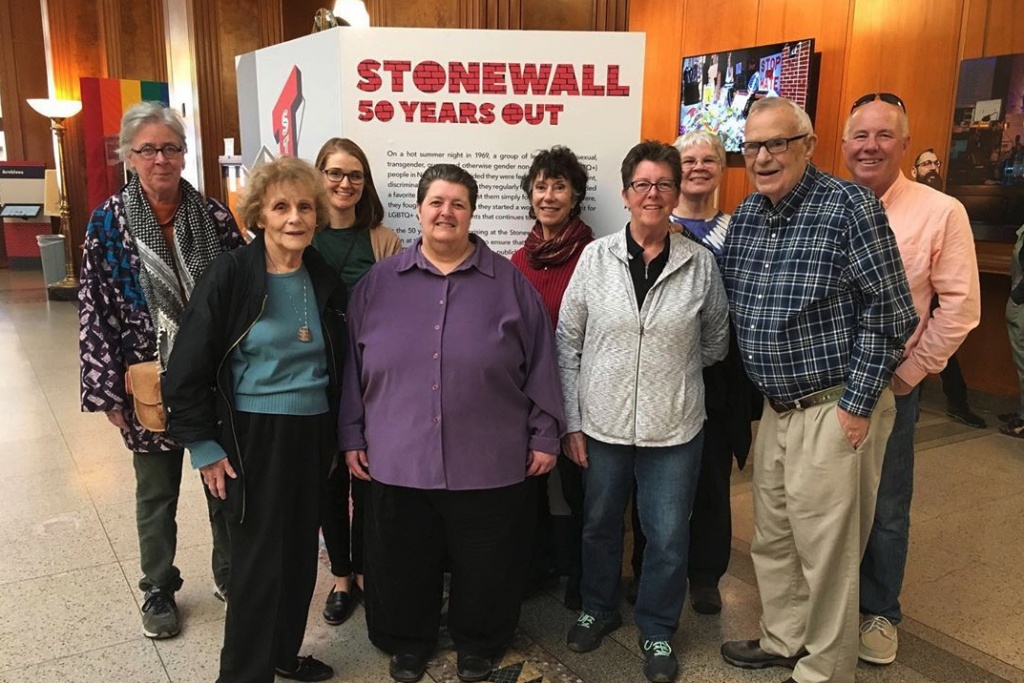When David Smith was a kid, his pastor asked him to read Psalm 139 in front of his congregation, inspiring Smith to become ordained himself.
The scripture serves as a mantra for some LGBTQ people, as it describes being “fearfully and wonderfully made” by God, said Smith, a gay man. He struggled to bridge his faith and identity growing up in a conservative Southern Baptist community in North Carolina, and graduated college with degrees in biblical studies and philosophy and worldviews.
Smith said he sought degrees in these fields because he wondered, “Could God love and use a person like me?”
“It was not by rejecting the Bible or rejecting faith…but by digging deeper into it that I came to this understanding that God loved me for who I was,” he added. “I was fearfully and wonderfully made, and I better do my best to make sure that I share that message with others.”
Smith, who worked as interim associate pastor for youth ministry at Bryn Mawr Presbyterian Church until June 11, is one of several pastors across the country who participated in the Pam Byers Memorial Fund Project. The initiative collects, preserves and shares records and oral accounts of LGBTQ people in the church. The Presbyterian Historical Society, the Presbyterian Church’s national archives on Lombard Street near 4th, runs the program.
Pam Byers was a leading advocate for LGBTQ religious inclusion. She served as first executive director of the Covenant Network of Presbyterians, an organization dedicated to furthering the inclusion of queer-identifying people in the church. Byers died in 2014, and the historical society mobilized to continue her legacy and document the 40-year movement championing ordination and marriage rights for LGBTQ Presbyterians.
Elizabeth Wittrig, archivist for the project, became the first and only full-time staffer dedicated to the initiative last September. She travels nationally to interview LGBTQ church leaders and members about their experiences and collect documentation detailing Presybterian queer acceptance and discrimination over time.
“You can tell it means so much to people to be able to tell their stories and to know that their stories are going to be preserved and passed on,” Wittrig said, noting this is the first time the church has orchestrated an LGBTQ project like this.
The archives contain oral histories with Presbyterian LGBTQ advocates including Scott Anderson, who was ejected from his ordination in California during the 1990s when a congregation member outed him, and Heidi and Frank Vardeman, ally pastors in the 1980s at a Florida congregation that helped form a health organization called Tampa AIDS Network. The archives also house documents like a 1977 church task force study on “homosexuality” and the itinerary for a 1984 “Presbyterian consultation on homophobia education.”
This year, Smith contributed an 88-minute oral history about his journey toward ministry and the process of reconciling his LGBTQ and Christian identities, he said. Smith also submitted a self-authored hymn, sermons, papers from his ordination and a statement of faith.
That the project includes voices from ordinary LGBTQ folk involved in the church, in addition to leading queer pioneers, is Smith’s favorite aspect of the undertaking.
“[Researchers] are also talking to folks like me who are really just beginning our careers, but who identify as gay and who have had our sense of call and our identity as Christians shaped by this parallel reality that is our LGBT identity,” he said. “Years from now, people are going to be looking for these stories, not just of the big movers and shakers, but of regular people trying to live out their calling in their daily lives.”
The most impactful aspect of the project is that the story detailing the fight for LGBTQ inclusion in the church won’t be forgotten, Wittrig said. While her post ends in September, she’s confident the collecting initiative will continue at the historical society even if her position isn’t renewed.
“It’s a really long history that has a really long struggle for inclusion in the church,” Wittrig said. “Being able to document this history helps keep some of those stories of persistence and perseverance alive. If there’s ever a future struggle in the church, this is something that people can learn from.”

